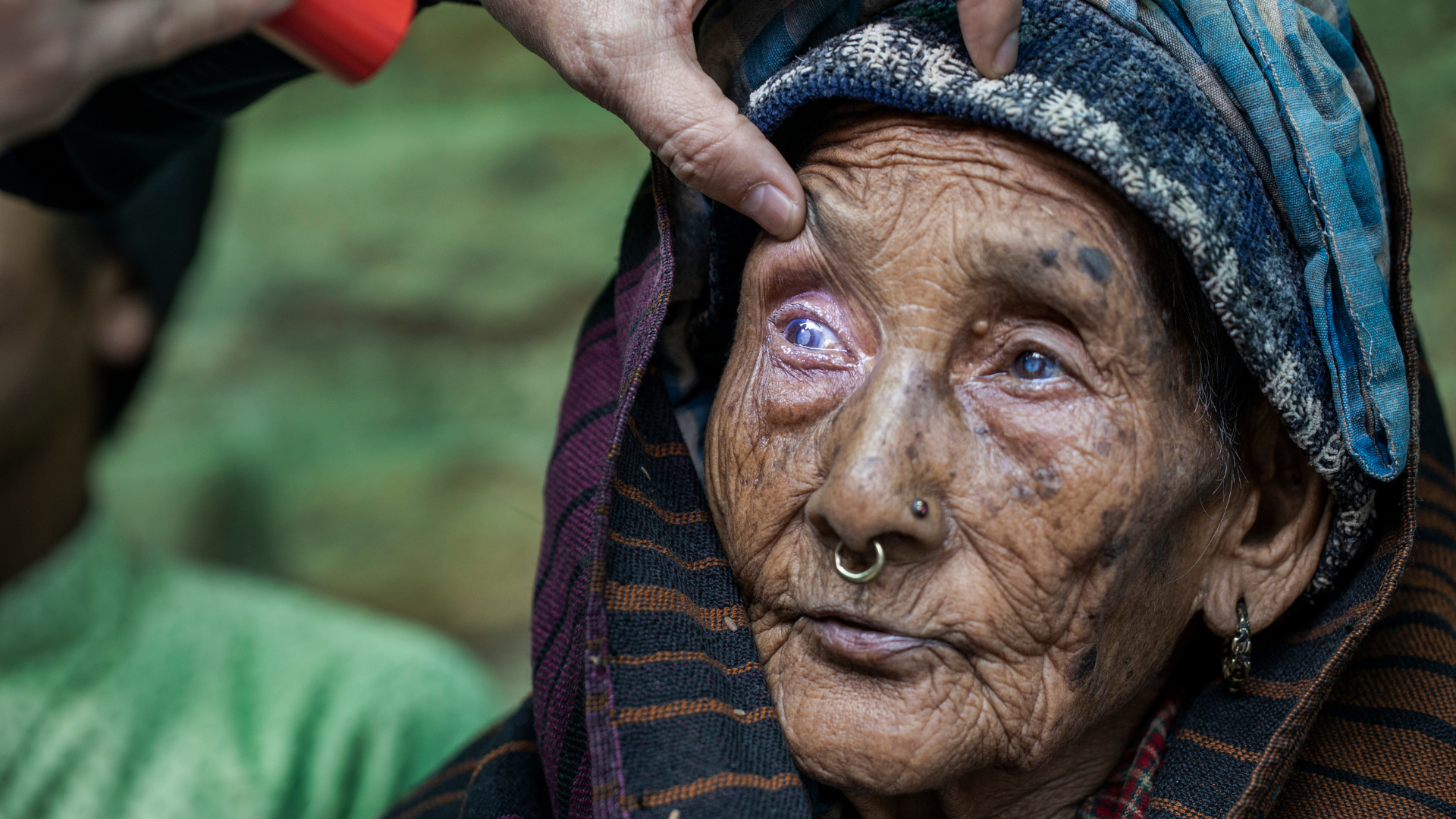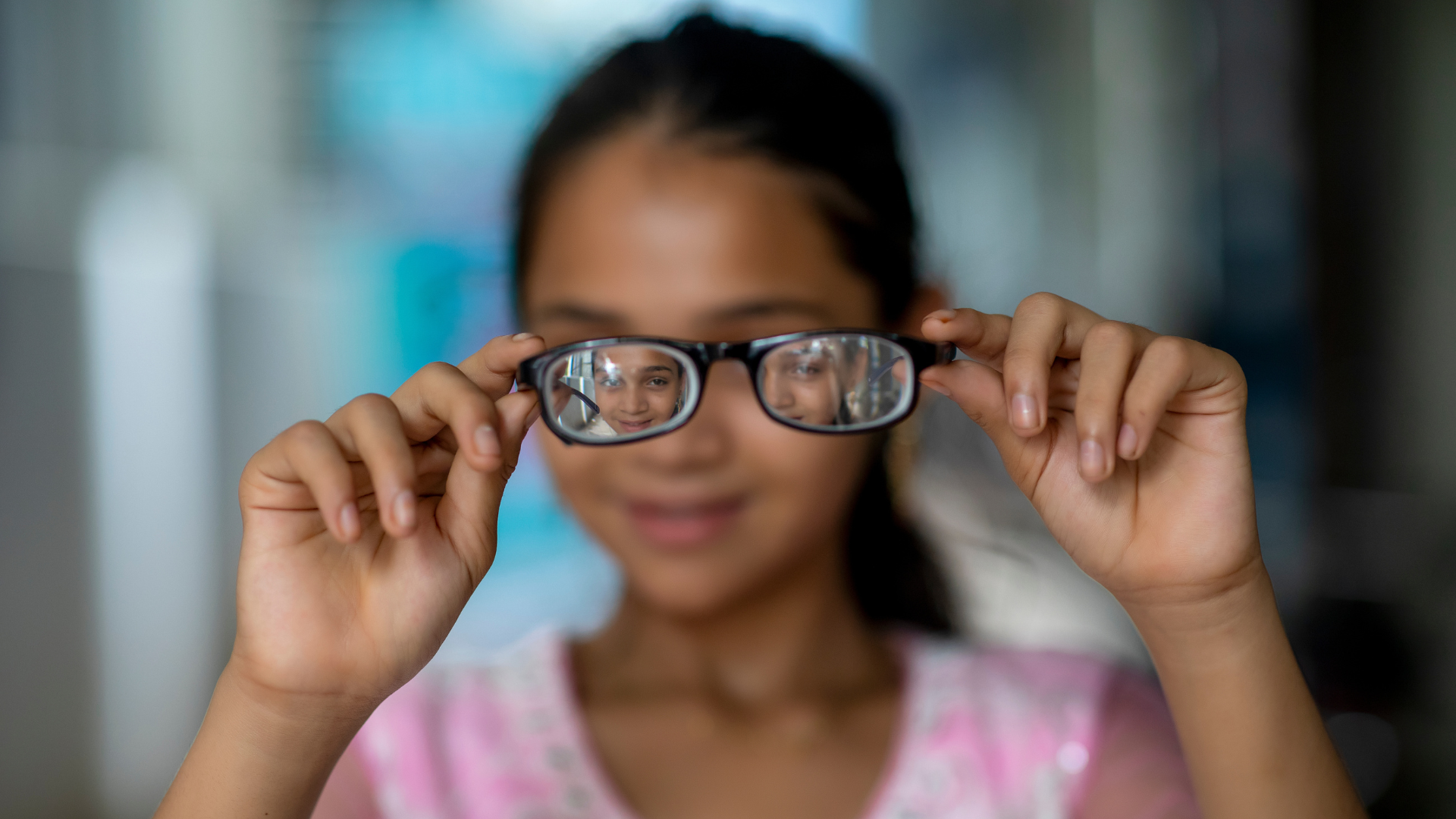Eye health
Why do my eyes look and feel tired?

Tired feeling and tired looking eyes are a common occurrence, especially among people who spend a lot of time in front of a computer screen or mobile device. Stress and worry leading to lack of sleep can also lead to eye-related concerns. Dull eyes are not usually a serious problem, as they’re generally caused by lifestyle factors, like too much screen time or too many late nights. However, they could also be a natural side effect of ageing or a medical condition.
In a hurry?
Click on the link below to go directly to the question you’re most interested in:
- Why do my eyes look dull?
- Why do my eyes feel tired?
- Why are my eyes dry?
- Why are my eyes itchy?
- How can I stop my eyes from feeling tired?
Why do my eyes look dull?
You may be wondering why your eyes have lost their sparkle. The most common reasons include:
- Lack of sleep.
- Long working hours.
- Long screen hours on a computer and mobile devices.
- Late nights.
The Sleep Foundation recommends that the average adult gets between seven to eight hours of sleep every night. When you're in the deep sleep stage, your eyes can rejuvenate and replenish themselves. That's why it's so important to ensure you're getting enough quality sleep each night.
Since the beginning of the COVID-19 pandemic, screen-time has been at an all-time high. The extended exposure to the glare and blue light emitted from screens can cause severe eyestrain.
Since the beginning of the COVID-19 pandemic, screen-time has been at an all-time high. The extended exposure to the glare and blue light emitted from screens can cause severe eyestrain.
Why do my eyes feel tired?
Your general day to day behaviours can bring about tired eyes. A lack of sleep, exposure to strong light or sunshine, heating or air conditioning can make our eyes feel tired.
Reading for extended periods of time, driving, or using a computer are other frequent causes of tired eyes.
Within the eye is the ciliary muscle. Its function is changing your eyes' lenses shape, so you can focus on far-off or up-close objects. This muscle fails to focus on adjacent things when it is overworked, especially for prolonged periods of time. It becomes more challenging for your ciliary muscles to adjust your lenses and provide you with clear vision when you gaze at an object for an extended period because you prevent them from contracting and relaxing.
Overusing your ciliary muscles can result in tired eyes. Remember your eye is just like any other muscle in your body - it needs to rest!
Reading for extended periods of time, driving, or using a computer are other frequent causes of tired eyes.
Within the eye is the ciliary muscle. Its function is changing your eyes' lenses shape, so you can focus on far-off or up-close objects. This muscle fails to focus on adjacent things when it is overworked, especially for prolonged periods of time. It becomes more challenging for your ciliary muscles to adjust your lenses and provide you with clear vision when you gaze at an object for an extended period because you prevent them from contracting and relaxing.
Overusing your ciliary muscles can result in tired eyes. Remember your eye is just like any other muscle in your body - it needs to rest!

Photo credit: The Fred Hollows Foundation
Why are my eyes dry?
Our eyes require a smooth tear film for the eye's surface to be regularly smooth, stay healthy, and feel comfortable. This tear film is distributed along the eye surfaces as you blink keeping the eye moist. However, when reading, using a computer, or watching television we don't blink as frequently, resulting in drying up the surface of the eyes.
A lack of consistent blinking can result in reduced tear distribution, an inadequate teary coating, and prolonged exposure of eye surfaces and evaporation of tears leading to dry eyes.
You may experience excessive watering, grittiness, redness, feeling of foreign bodies in your eyes, and dryness as symptoms of dry eyes.
A lack of consistent blinking can result in reduced tear distribution, an inadequate teary coating, and prolonged exposure of eye surfaces and evaporation of tears leading to dry eyes.
You may experience excessive watering, grittiness, redness, feeling of foreign bodies in your eyes, and dryness as symptoms of dry eyes.
Why are my eyes itchy?
Our immune system's mast cells produce histamine when allergens come into contact with the surface of the eye, inflaming the eye's tissues, particularly the conjunctiva, the mucous membrane that covers the front of the eye and lies underneath the eyelids. This process results in the swelling and itchy symptoms of allergic conjunctivitis, which is an eye allergy.
Allergies come on gradually or suddenly, and they can be moderate or severe. Seasonal allergies are particularly prevalent in the spring and autumn when there is increased exposure to grass and weeds as well as higher pollen levels. Perennial allergies, often called year-round allergies, are brought on by irritants like dust, pollens and mould.
You could occasionally even experience discomfort because of a product you use. Among these are contact lens solutions, cosmetics, soaps, and lotions.
Allergies come on gradually or suddenly, and they can be moderate or severe. Seasonal allergies are particularly prevalent in the spring and autumn when there is increased exposure to grass and weeds as well as higher pollen levels. Perennial allergies, often called year-round allergies, are brought on by irritants like dust, pollens and mould.
You could occasionally even experience discomfort because of a product you use. Among these are contact lens solutions, cosmetics, soaps, and lotions.
How can I stop my eyes from feeling tired?
By taking a break, improving your air quality and wearing the right prescription, you can help alleviate tired eyes.
You should give your eyes a break. Make sure your eyes are prepared for a long day of work by taking frequent breaks, getting enough sleep, and getting enough rest.
You should take every precaution to prevent dry air when it comes to air quality. Avoid using the air conditioner if you can and open a window in its place. If the air is especially dry, use a humidifier, and stay away from irritants like smoking.
Finally, make sure you regularly have your eyes tested and are wearing the correct prescription. If you don't already wear glasses, now is the time to find out if you need them!
You should give your eyes a break. Make sure your eyes are prepared for a long day of work by taking frequent breaks, getting enough sleep, and getting enough rest.
You should take every precaution to prevent dry air when it comes to air quality. Avoid using the air conditioner if you can and open a window in its place. If the air is especially dry, use a humidifier, and stay away from irritants like smoking.
Finally, make sure you regularly have your eyes tested and are wearing the correct prescription. If you don't already wear glasses, now is the time to find out if you need them!

Photo credit: KM Asad
DISCLAIMER: The content on this page is not intended to be medical advice. For specific medical advice, please contact your health professional.
COVER PHOTO CREDIT: The Fred Hollows Foundation
Meet the author
Related articles
View these articles

The eye doctor helping communities see again in Laos
Dr Senglar Laosern is transforming lives in northern Laos. From remote villages to the surgical ward, she and her team restore sight for children and adults with cataracts, giving independence and hope to those who need it most.

Taking eye care to potters in Bangladesh
Learn how The Fred Hollows Foundation is helping potters in Bangladesh protect their eyesight. From practical eye care tips to community awareness sessions, discover how we are safeguarding vision while supporting traditional crafts.

How we celebrated World Sight Day 2025: Promoting eye health around the globe
Thanks to you, thousands of people across the globe had their eyes checked, received glasses, and even regained their sight this World Sight Day.

